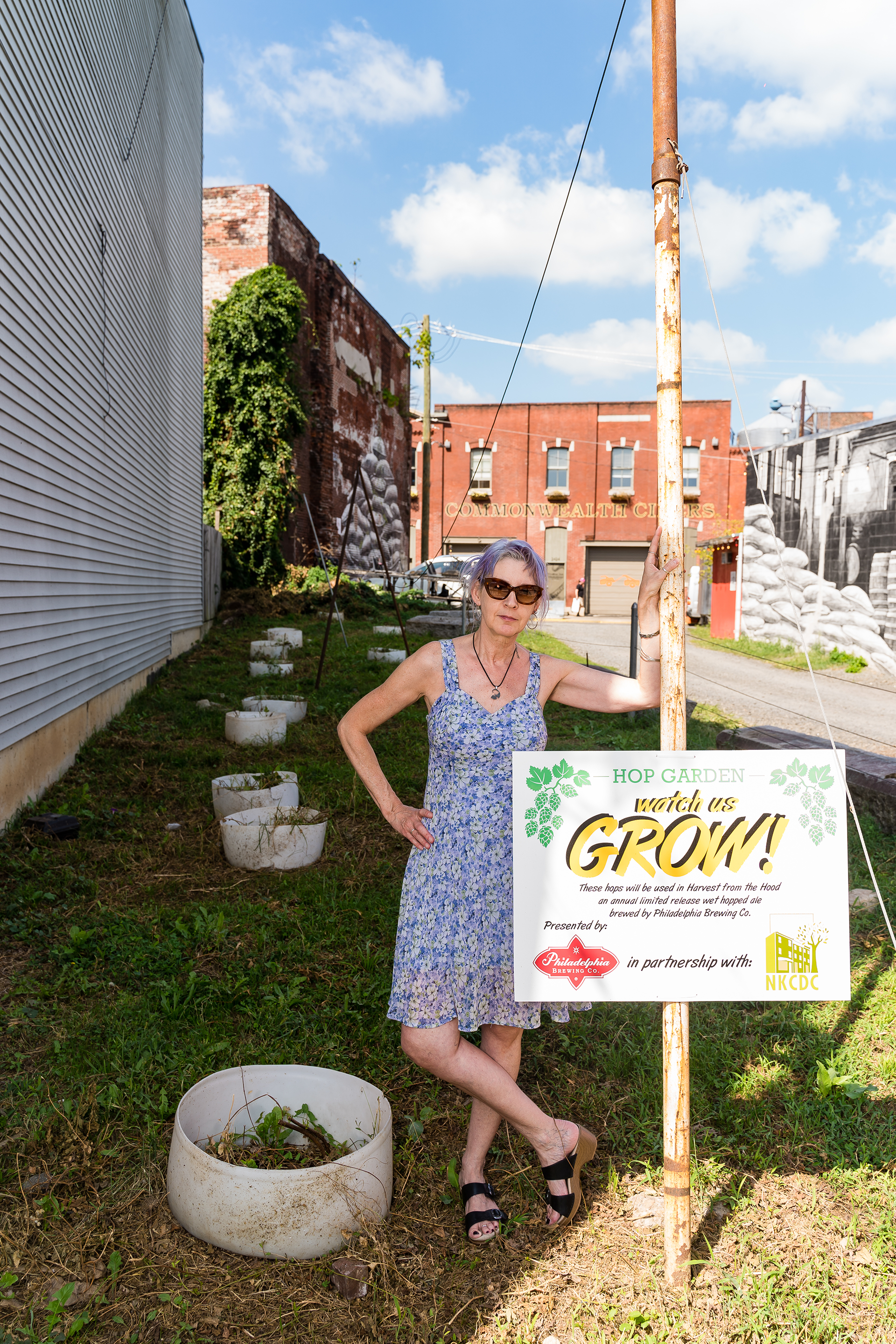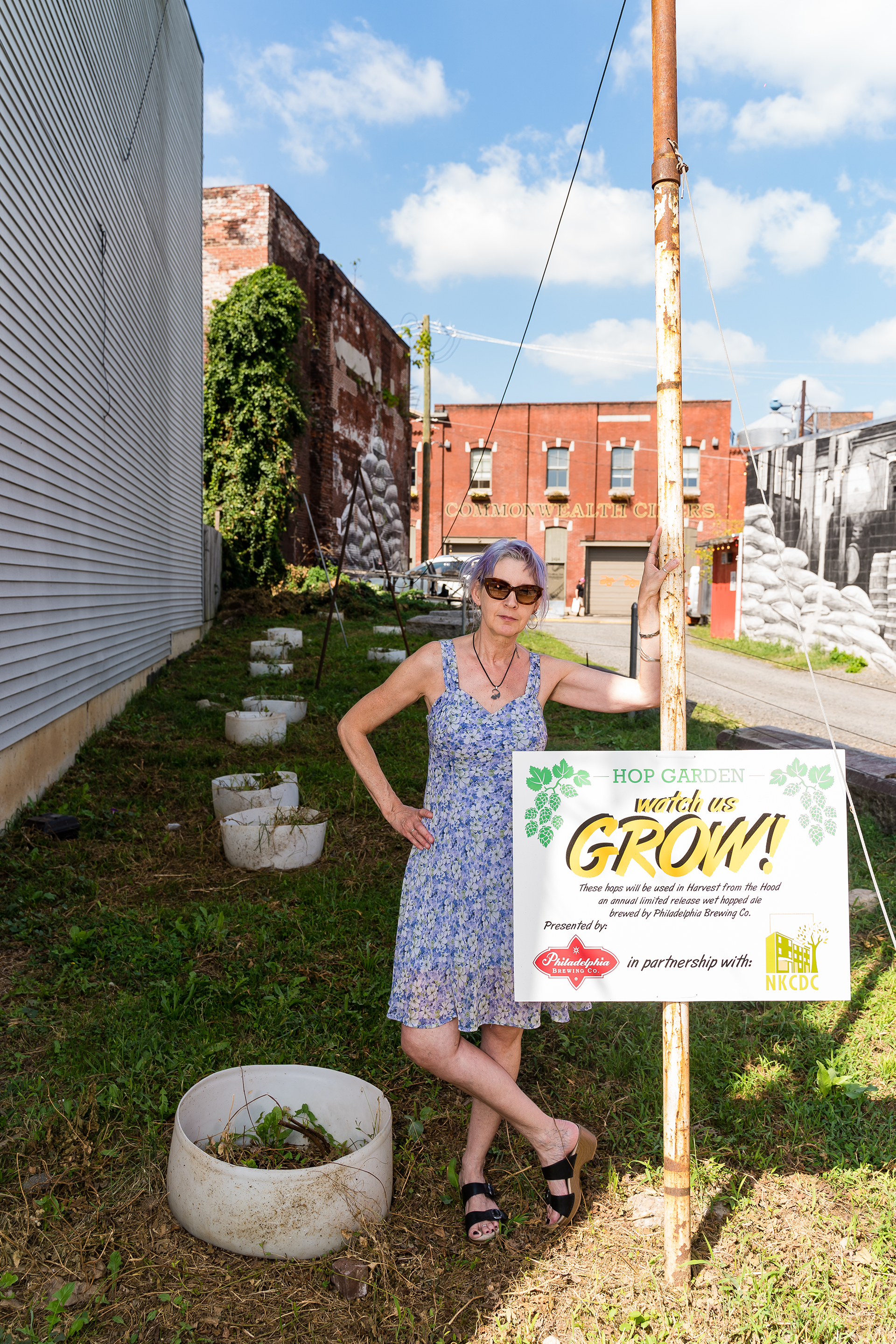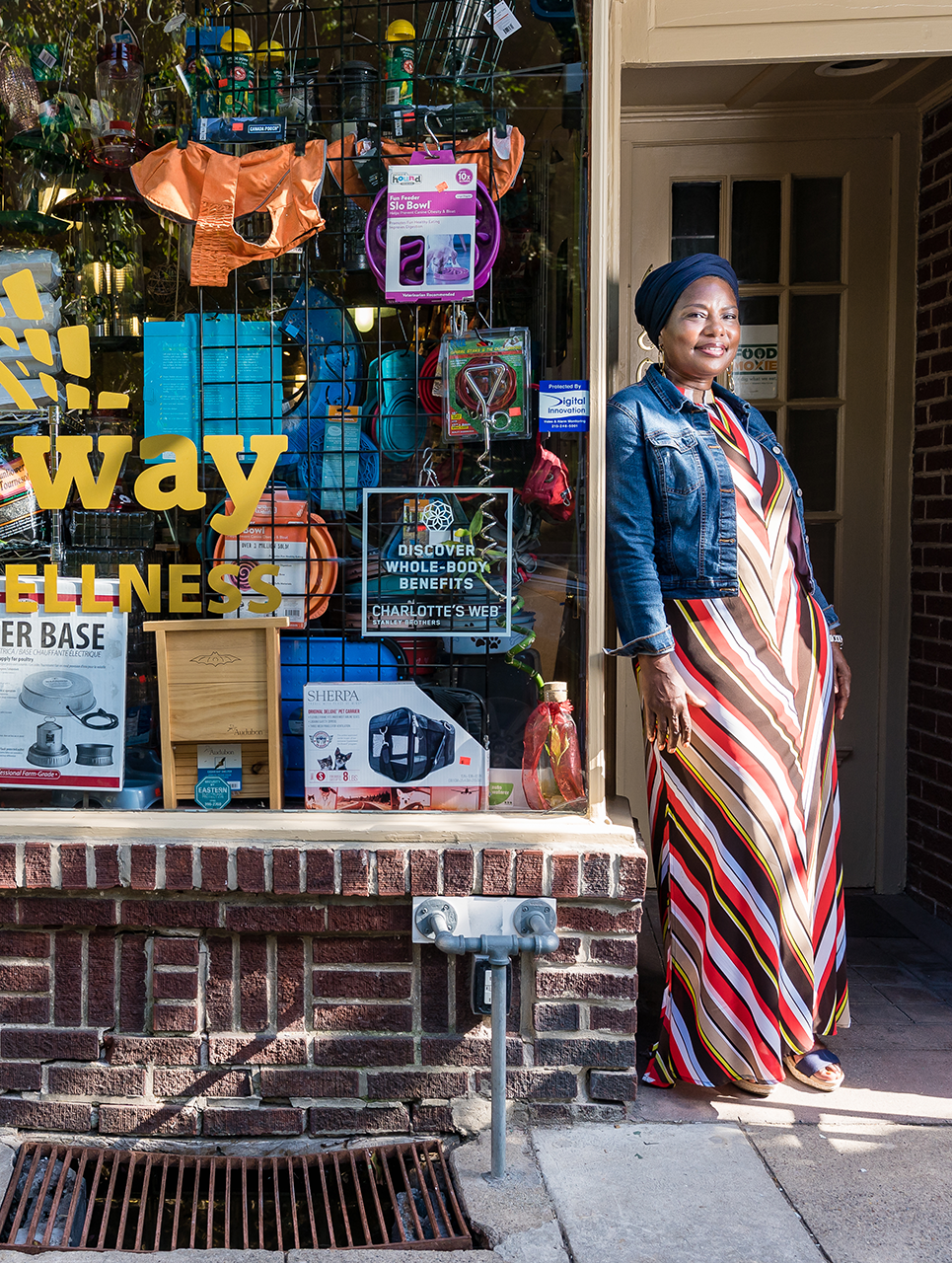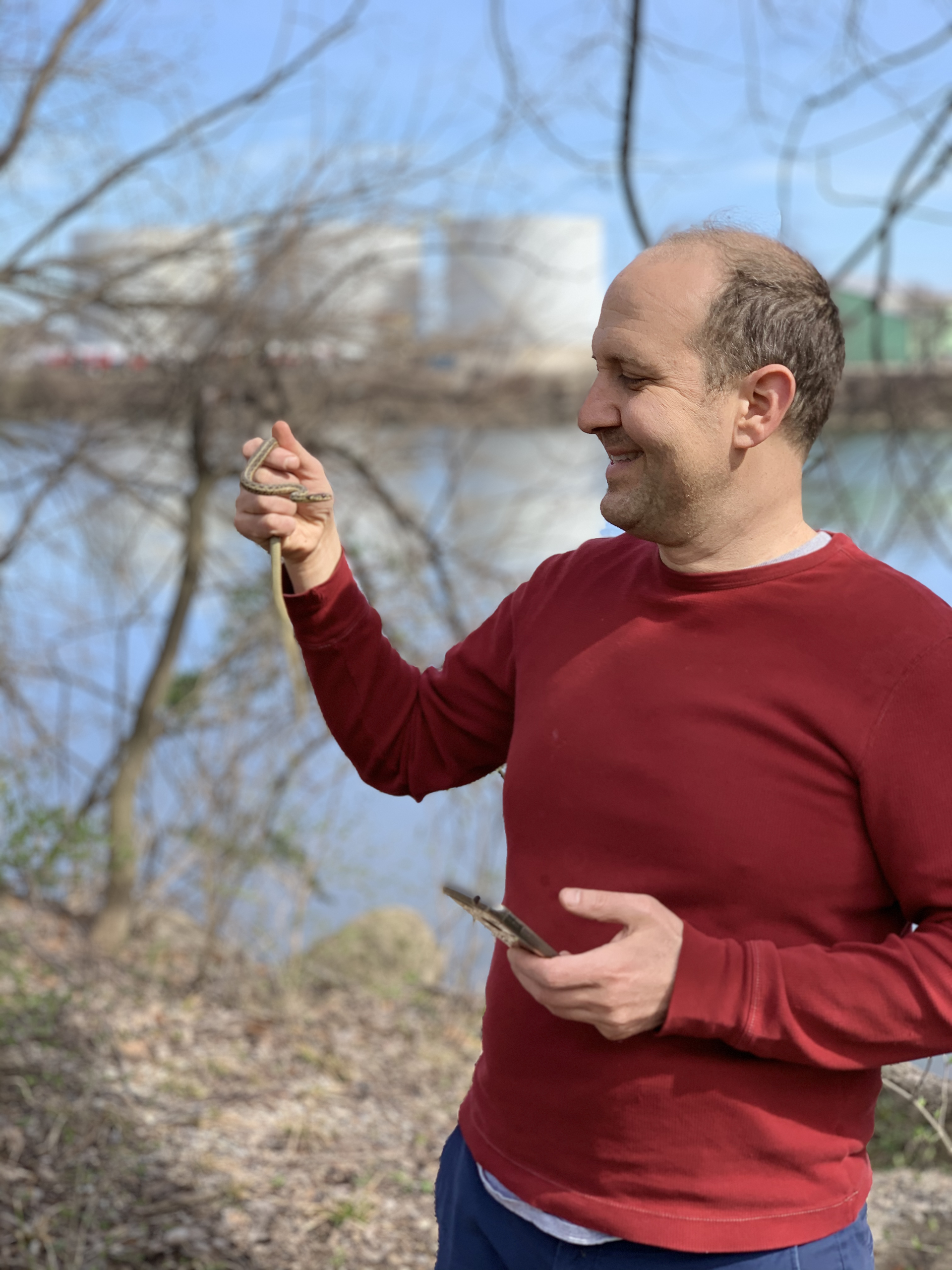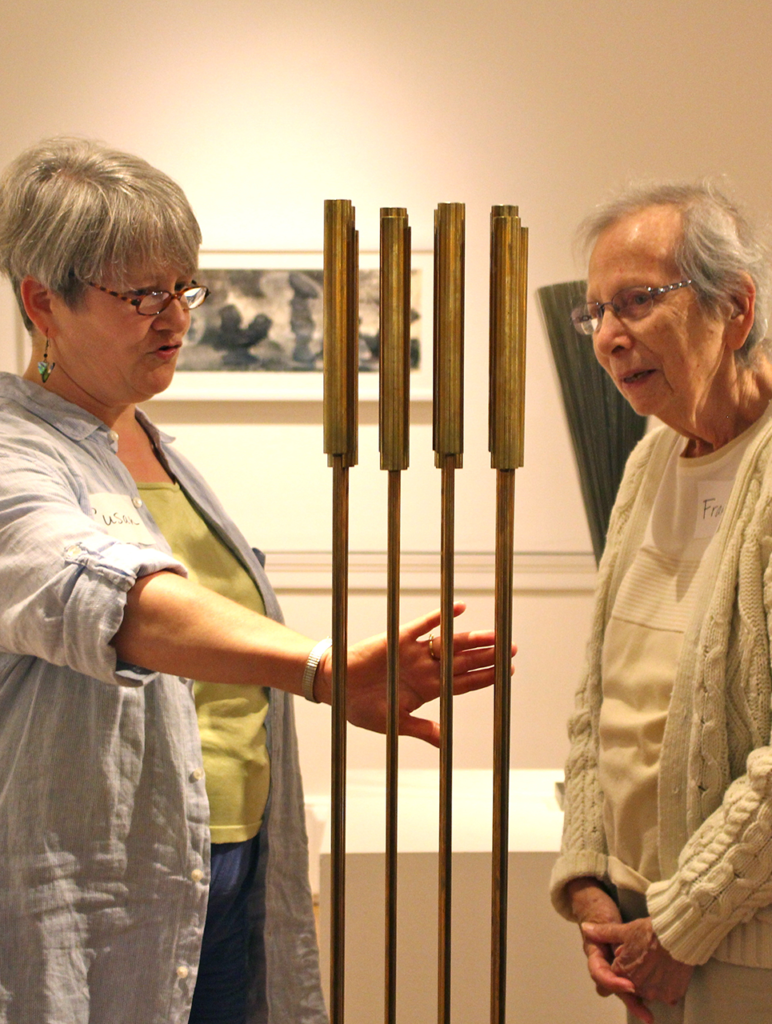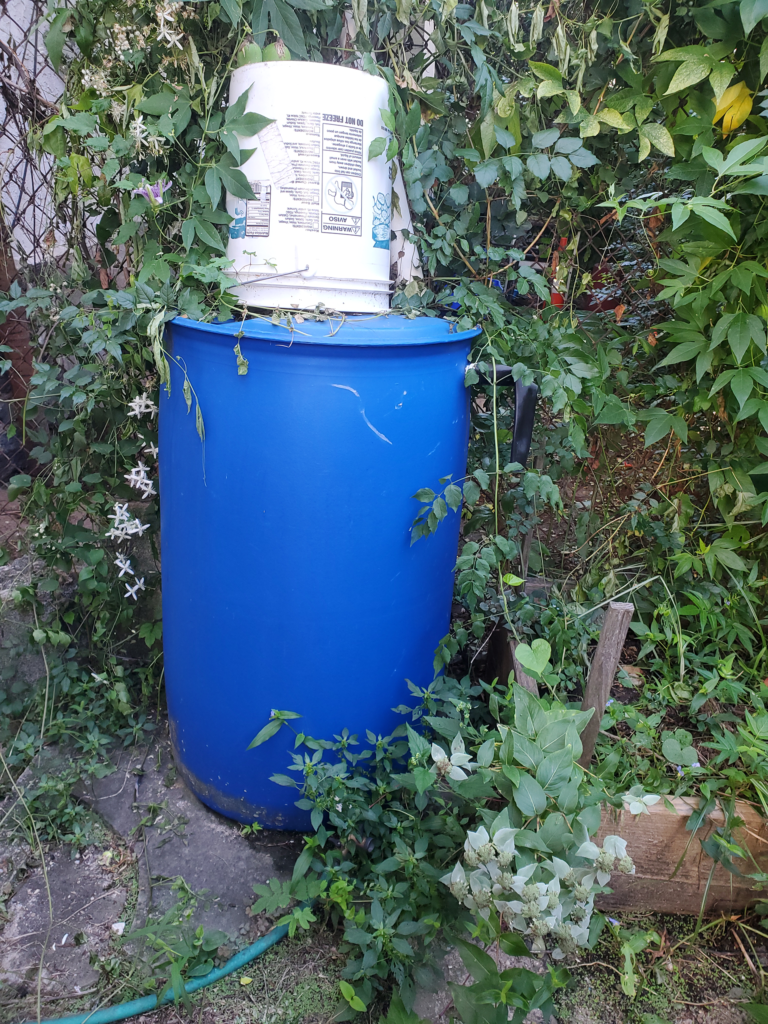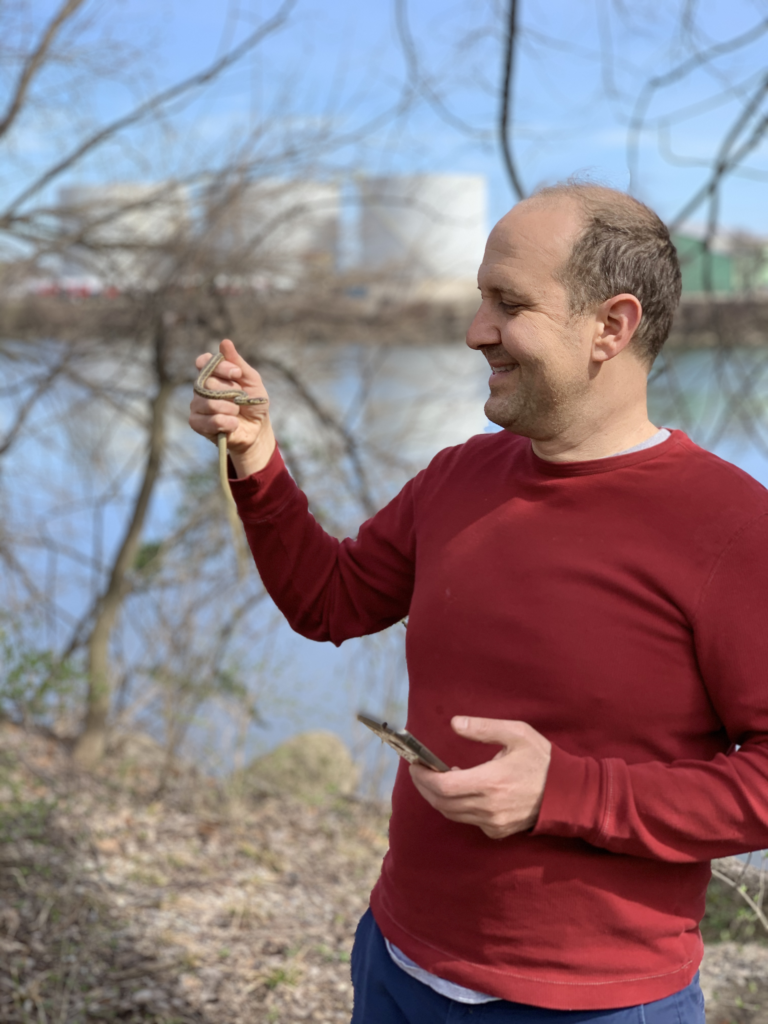Sandi Vincenti isn’t sure who called CLIP (the Community Life Improvement Program) on her native plant demonstration garden in Fishtown, A Child’s Inspiration Wildlife Discovery Garden. She can think of two possibilities. One is a developer interested in building on the plot. “The other assumption is that we have two neighbors in some of the newer, more expensive houses in the neighborhood and maybe for them, it wasn’t what a garden is supposed to look like.”
“What a garden is supposed to look like,” however widely accepted, is an environmental disaster. Nationally lawns suck up about 90 million pounds of fertilizer per year and 78 million pounds of pesticides. The EPA estimates that Americans use 9 billion gallons of water per day to irrigate lawns and gardens. Turf grass covers more than 63,000 square miles of the lower 48, about one and a half Pennsylvanias, which is three times more area than any irrigated crop. All this for something primarily grown to be looked at but not eaten.
And humans aren’t the only animals that don’t eat lawns. North American insects have generally not evolved to eat the Eurasian grass species that make up the lawn (even “Kentucky” bluegrass is originally from the Old World). The same is true of many of the other exotic (not from here) plants that gardeners favor. For our native critters, which didn’t evolve to eat the mostly Eurasian plants Americans garden with, the lawns and the trimmed privet hedges are pretty much blank spots on the landscape.
Native plant species, by contrast, fill in the landscape with a feast for the local bugs, which in turn feed birds, lizards, frogs and all the creatures that eat them. Plants that evolved to grow here can also do so without all the chemical support and irrigation that exotic plants rely on.
These benefits have led increasing numbers of environmentally-minded gardeners to work with native plants. Certification programs have sprouted up as well, with the National Wildlife Federation, for example, stamping its approval on Wildlife Habitat gardens. The National Audubon Society promotes bird-friendly yards, and the Penn State Extension certifies pollinator gardens. The challenge is that a wilder-looking garden might look untended to the uninitiated.
Neighbors fighting decades of disinvestment can be legitimately concerned about neglect that invites trash dumping and crime, in some cases leading them to call the Department of Licenses and Inspection’s code enforcement or CLIP on unconventional gardens. Code enforcement can issue fines, while CLIP teams respond to complaints by neighbors about vandalism, graffiti and unkempt vacant lots and clean up the mess.
In other cases hostile neighbors intentionally weaponize these programs.
Derik Moore and his wife grow native plants such as black-eyed Susan, goldenrod, blazing star and pink muhly grass in their Roxborough garden. They were surprised to get a notice from code enforcement that their property was overgrown, and they would be subject to a $300 fine if they didn’t clean it up. “It was just a [bad] neighbor who we have had some conflicts with,” Moore says.
They invited an inspector to visit again. They gave him a personal tour of the garden, which solved the problem. “He looked at it for two seconds, and he went, ‘Oh come on,’ and walked away,” Moore says.
The National Wildlife Federation offers several tips for native plant gardeners to avoid conflict with their unenlightened neighbors, including framing garden areas with paths or fences, choosing species with showy flowers, and talking to neighbors about the garden so that they know it is intentional.
The City would not make any CLIP staff available for an interview, but in an email Kevin Lessard, director of communications for the Office of the Mayor, wrote that “people can call the office and explain to the Vacant Lot Administrator at 215-686-4582 if they receive a violation notice or if they want to be proactive and let her know in advance.” Signage also helps to make clear that someone is tending the space.
Without the hops, the brewery can’t produce this year’s batch of Harvest from the Hood, costing it at least $25,000.
Nonetheless, even vegetable or herb gardens can fall victim to beautification efforts, as when the Philadelphia Brewing Company found that its hop garden in Kensington had been mowed down by CLIP on September 13. The brewery uses the hops for its Harvest from the Hood beer and has been growing them at the lot next to their beer garden for at least seven years, according to co-owner Nancy Barton. She had spoken to an inspector from CLIP earlier in the summer after the New Kensington Community Development Corporation, which owns the lot, had received a violation notice. The inspector then revisited the lot, which had a sign explaining the hop garden, and told Barton that the case would be closed without a violation. “He cleared it, so we thought,” Barton says. “On Tuesday they were all chopped down.” Without the hops, the brewery can’t produce this year’s batch of Harvest from the Hood, costing it at least $25,000.
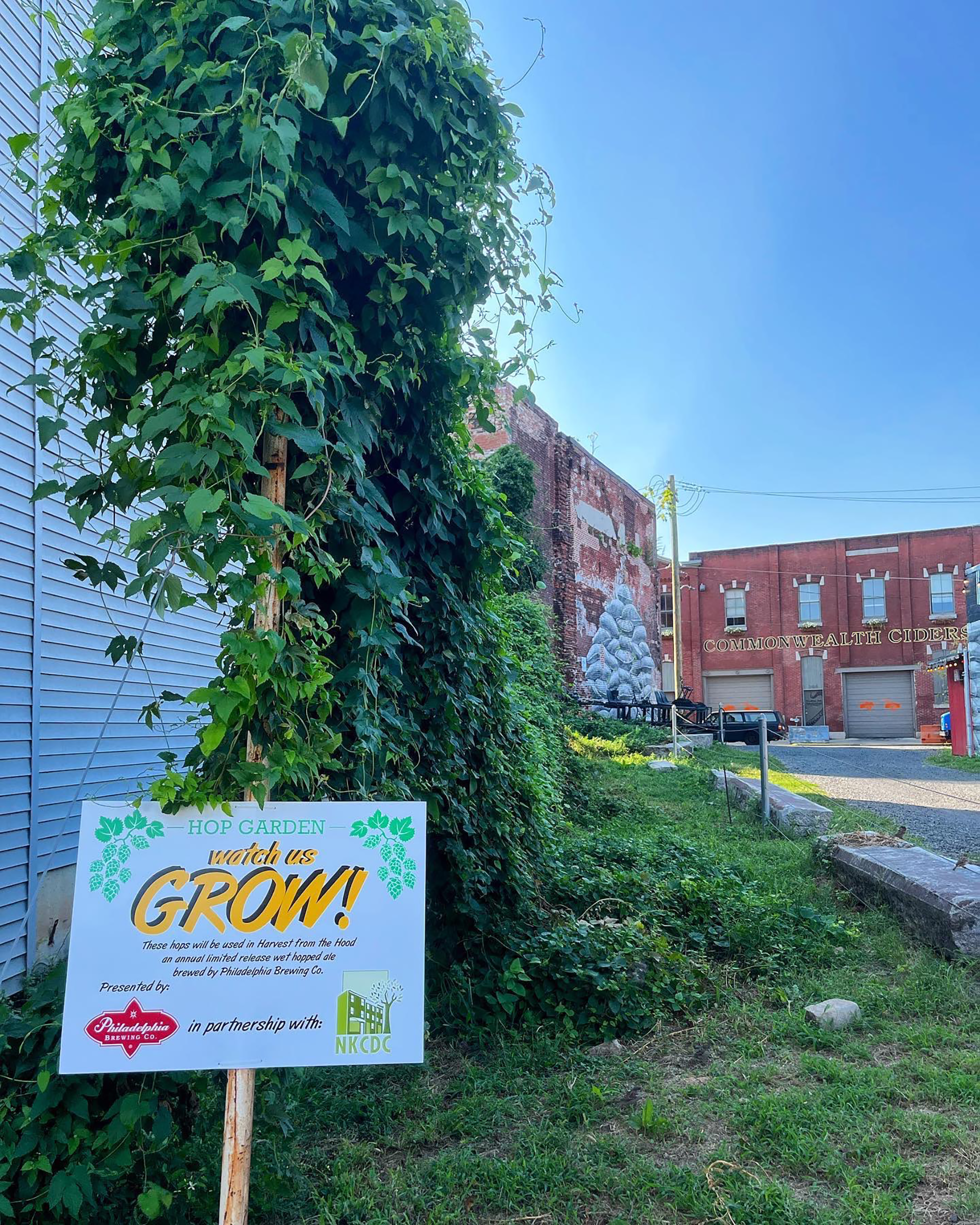
Tyler Kruszewski, who gardens in Grays Ferry, has seen CLIP workers devastate the native plants he has tended on his property, in nearby vacant lots, and around street trees. “I’ve tried pollinator network signs … but due to vandalism in the neighborhood they constantly get ripped down,” Kruszewski says.
He tried to enhance the curb appeal of his plantings, but that only encouraged more vandalism. “I have tried to put up little fences around trees, and those get kicked down by the kids. In past years, I tried to make it look more manicured, planter boxes, and it makes it a target. I’ve found there’s less disturbance if it looks like weeds,” he says. The aesthetic also better fits his gardening philosophy. “You can garden with plants in a very controlled, manicured way, but I think nature knows best.”
Kruszewski spent three years building up the perennial plants around his house, but this summer they were mowed down by CLIP. “I knew CLIP was coming, and I heard them outside. I went and spoke to them. I asked them to please not touch these areas.” The message must not have made it to the rest of the crew. “I heard weed whacking and ran to the window … Long story short, they cut everything down to the ground.”
Kruszewski plans to continue gardening, but with seeds he has saved rather than plants he has to spend more money on. He also plans to reach out to the CLIP administrators to educate them about native plant gardening.
Vincenti’s run-in with CLIP had a happier ending. She reached out to the CLIP managers to brief them on the garden, which at the time had signs up as well as a fence (she has since moved). “I was so happy about how kind and thoughtful they were and how they didn’t give us any problems.”
